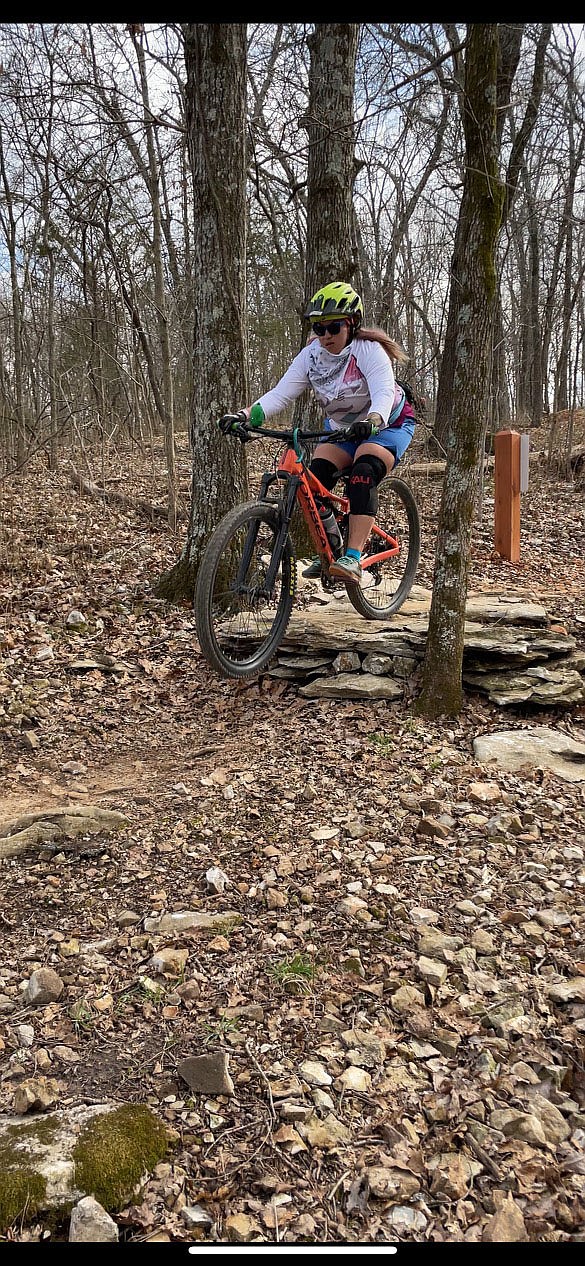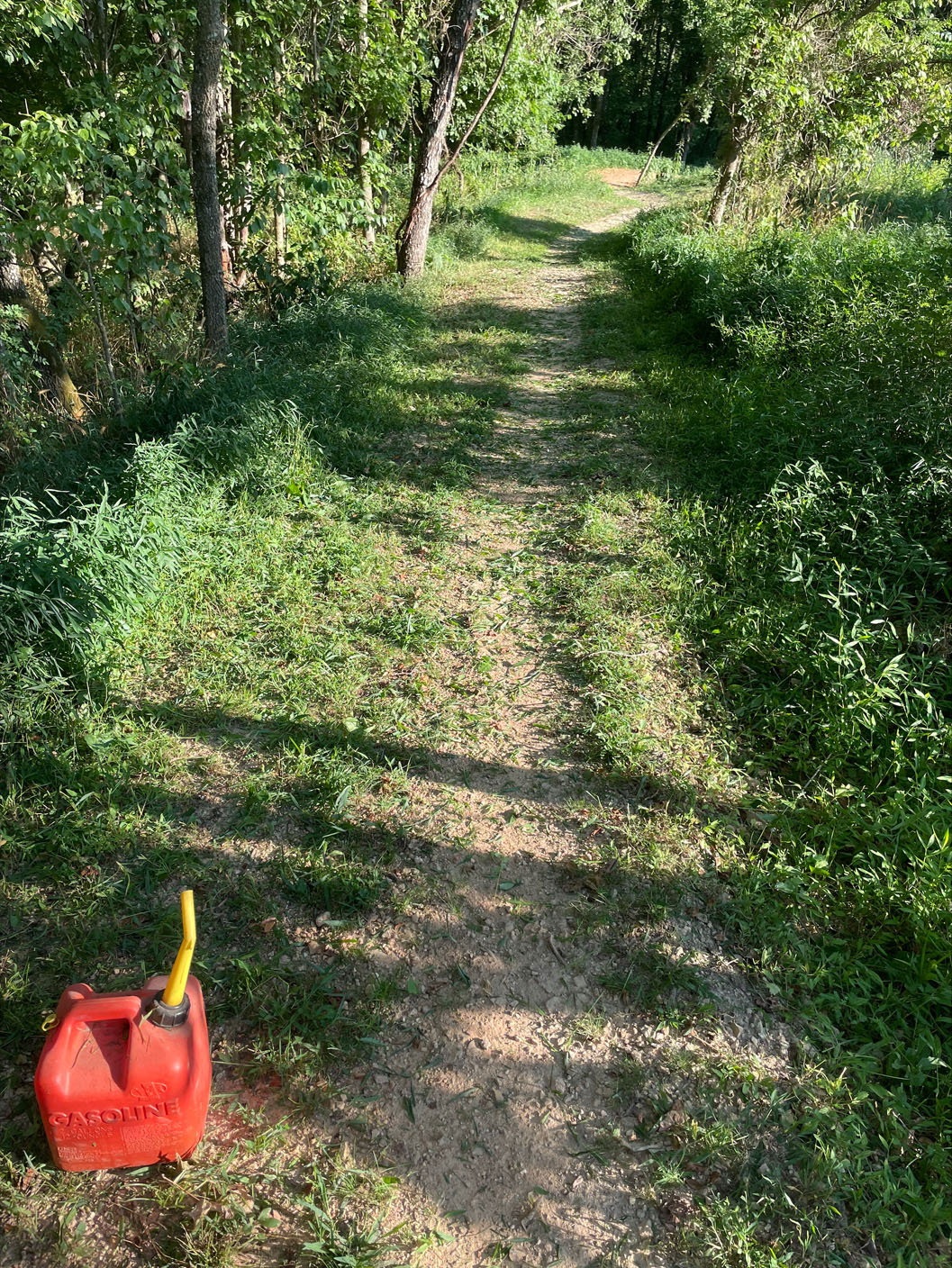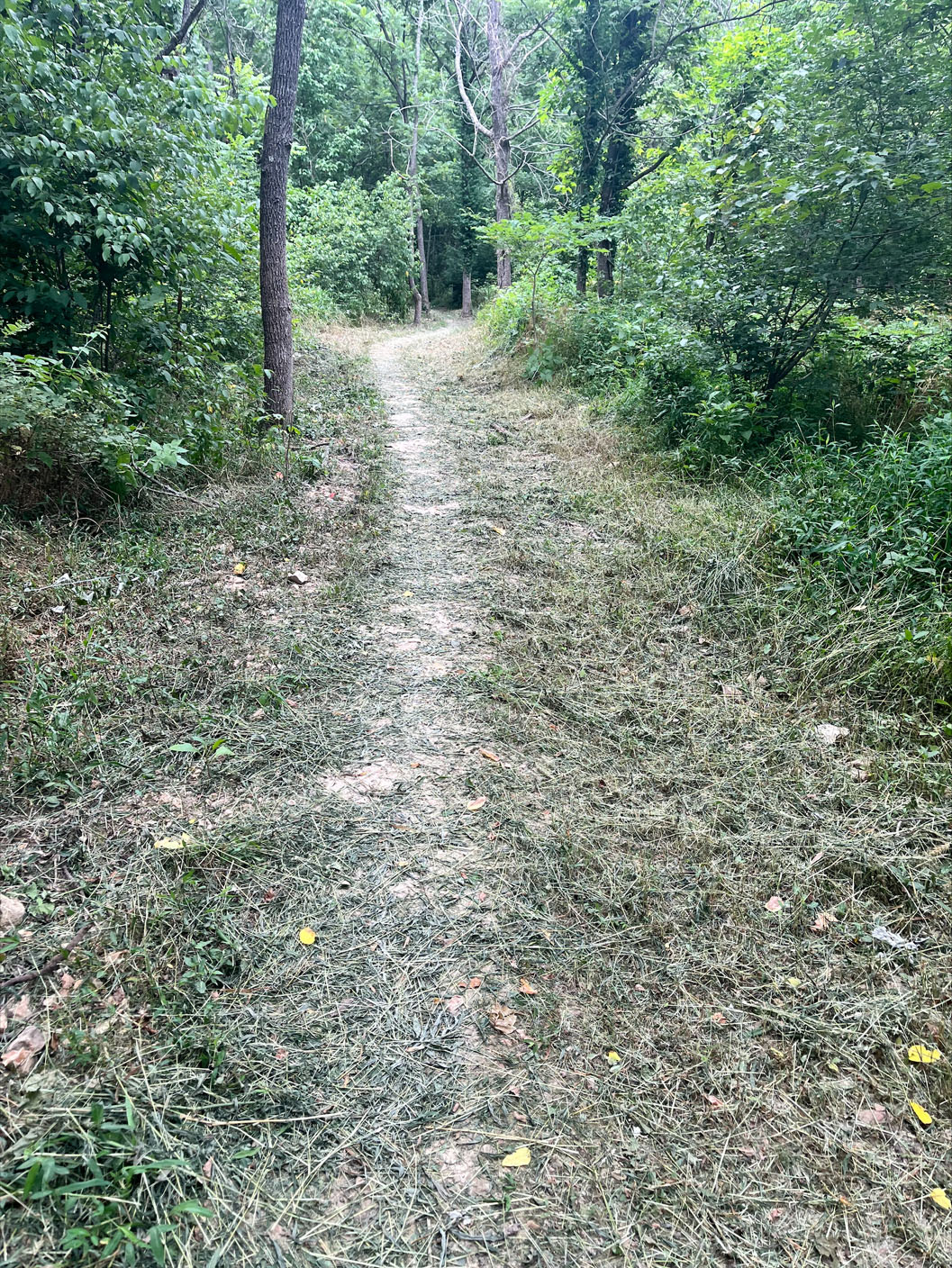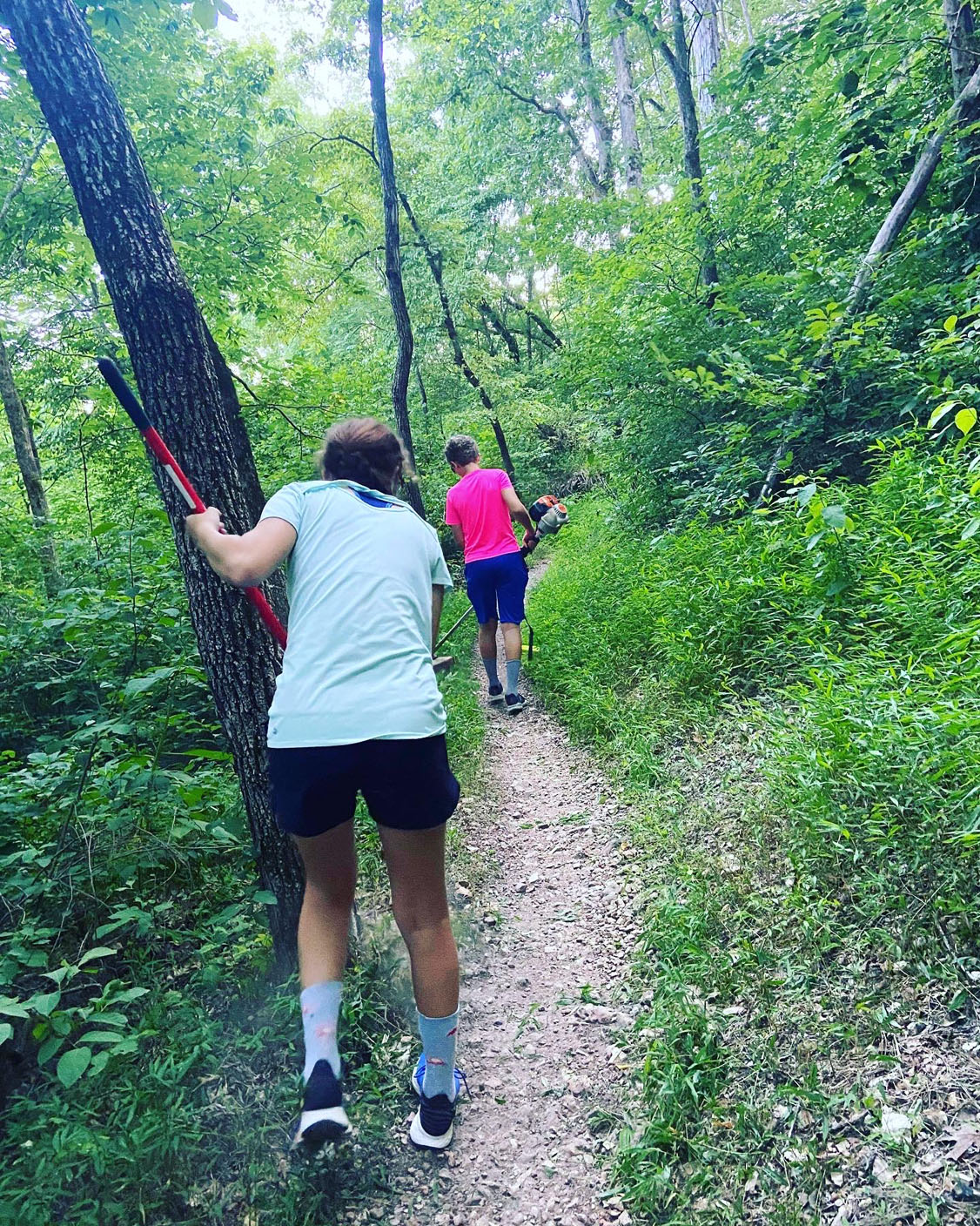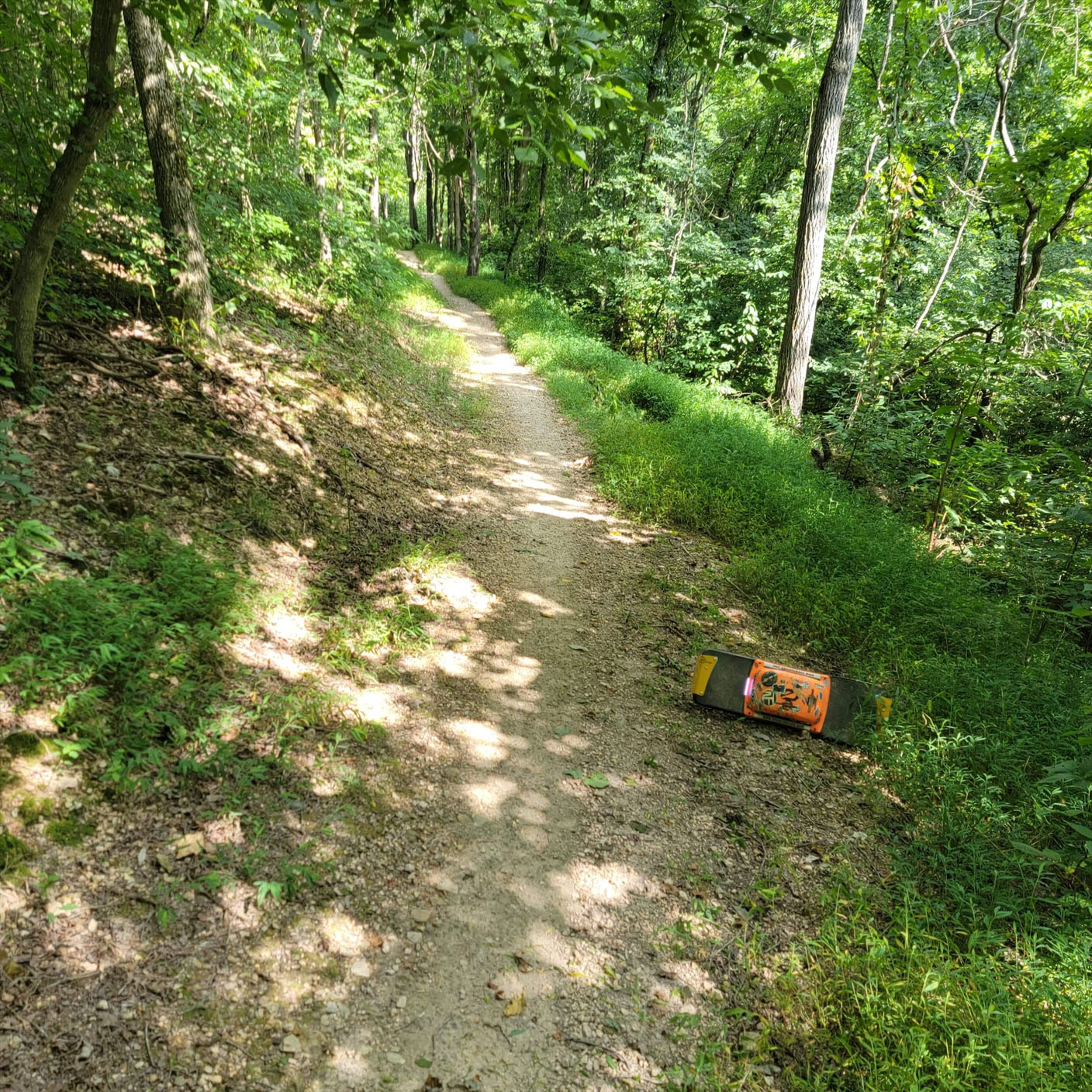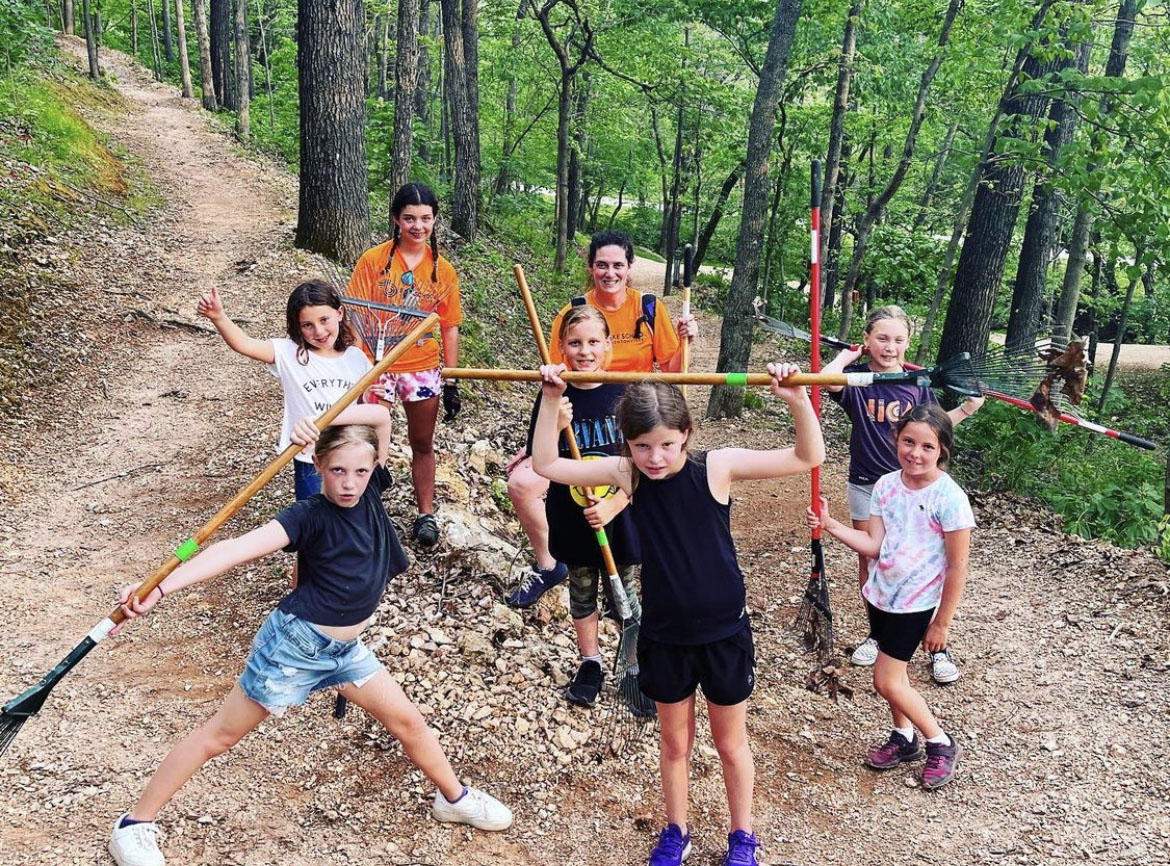BELLA VISTA -- Ciara Logan loves the trails in Northwest Arkansas.
She rides them almost daily, especially when it's not so hot. When she's out and about on her bike, she makes several stops -- to take photos of recent trail work, document issues that need to be addressed or help someone who is doing trail work.
Logan is the volunteer coordinator for Trailblazers and, as of 2022, the Trail Adoption Program coordinator. The Trail Adoption Program is run by a group of local volunteers who use their free time to keep up a designated section of trail within one of a few trail systems in Northwest Arkansas, including the Back 40 and Little Sugar trails in Bella Vista.
The program is funded by donations and provides tools and equipment such as trimmers, string, gasoline and oil, rakes, loppers and more. Volunteers are assigned a section, and on their own time they can stop by the program's storage unit and grab what they need then get to work. If in some cases the trail section that a person maintains is out their back door, they use their own equipment to do the work.
Logan, who started with Trailblazers in 2022, filled the gap in the need for better communication between professional trail crews and trail adopters within the community. She is the direct line of communication between the two and an advocate for (and often explainer of) each group's role within the trail world of Northwest Arkansas.
"A lot of volunteers don't want the recognition," she said. "They just go out and do their work and live their lives. I just want to tell everyone how awesome they are."
Her goal is to not only keep the Trail Adoption Program moving along but to grow it.
"As long as we maintain it, they will build it," she said, about the widespread growth of trails in the area in the recent years.
But she knows that the keys to keeping the program going are to keep it funded and to make sure those who are out working -- especially in the hot summer days like these -- are being recognized for the huge role they play and the hard work they do.
Logan is no stranger to feeling marginalized, and she uses that to lift others up. Born deaf, American Sign Language is her first language. She worked in the education field in Arizona until she was laid off because of budget cuts. After that, she moved to Arkansas where her parents live, never having even visited before.
She mountain biked in Arizona, but it was different there: a lot of loose rocks and sand.
"I fell in love with it here," she said, adding she typically chose to ride alone until about a year ago.
After word spread of an incident on a trail system in Northwest Arkansas because of her lack of hearing, she became a little more well known in the community and couldn't help but get more involved.
"I have always been into volunteering my whole life. I fight for the underdog," she said. "I have been that person that is marginalized and isolated. I want to go out and get people who don't feel included and do my best to make them feel accepted and heard and seen."
After mask mandates were instituted during the pandemic, Logan struggled to communicate because she could no longer read lips.
"Being deaf is my identity," she said, adding that following the start of the pandemic she had a special implant placed in her head to allow her to hear.
After being deaf her entire life, she has been able to hear for only a year or so.
"This world is really loud," she said, adding she can hear every noise that most of us have learned throughout our lives to tune out, like the sounds of an air conditioner.
But when she talks about riding her bike, it's not whether she can hear that she's mentioning. It's about how awesome the trails are here, or about the time she rode another trail system in a different part of Arkansas and got chiggers for the first time. That system, she added, has no volunteers maintaining it.
Luv Trails is an app that allows subscribers to participate in a mile-per-mile donation system or donate a lump sum. It's used nationwide, and all donations go back to the local group that maintains the trails.
Luv Trails is connected to Strava. Strava is a mobile app and website that was designed by athletes to "connect millions of runners and cyclists through the sports they love," according to their website. The app records a person's activity via GPS tracking, then allows them to share that activity and associated info with other users.
• When someone is ready to start a ride, they should look for the QR code on the trails signs where they are or use the app they've downloaded on their smartphone.
• When they first scan the code or open the app, they will be asked to sign up by filling out information and providing a credit or debit card to connect the Luv Trails account with the Strava profile.
• People can then go for a ride (or a run or a hike) using Strava and finish their activity. Luv Trails will send an email with the donation options. For instance, if a person rode 20 miles, they can choose to donate a certain amount per mile or maybe just donate $5 total. This donation rate can be changed each time.
Gravel and road biking doesn't count toward this program, since those aren't trails that are maintained by volunteers and connected to the app. Anywhere someone is using a trail that is connected to the app, like somewhere in Utah maybe, the donation goes back to the local biking association in that area that does maintenance.
On a good month, the area trails get around $1,000 back from users that are currently signed up, Logan said. The cost of maintenance per month on Bella Vista trails alone runs about half that just in tools and equipment and likely more during the heavy growing months.
"A new Weed Eater alone is $300 to $400," said Logan, since the group uses industrial versions for longevity.
Logan's goal in her position is to get more people to sign up -- both as trail adopters and as donors through Luv Trails.
"The benefit is the money goes right back to the trails to keep using them," she said.
She hopes to get the trail maintenance in the area to a point where the professional trail crews do the building and heavy lifting and are not tied down with everyday maintenance.
"If you can't afford $20 a month, then don't do that," Logan said.
Maybe try something like $.20 per mile, she suggested.
In June of this year, Bella Vista trails averaged 925 users per day. If each of these users went an average of 5 miles per trip, and each donated just $.20 per mile (a whopping $1 total), that's $925 a day back into the trails.
The trails in the area are always in need of adopters, Logan said. She aims to assign each adopter to only a half-mile section each.
"We provide all the tools and training. I will even meet them at their section and do it together and make sure they feel confident," she said.
Those who are interested can email Logan at ciara@wearetrailblazers.org and can find more information at https://luvtrails.com.
